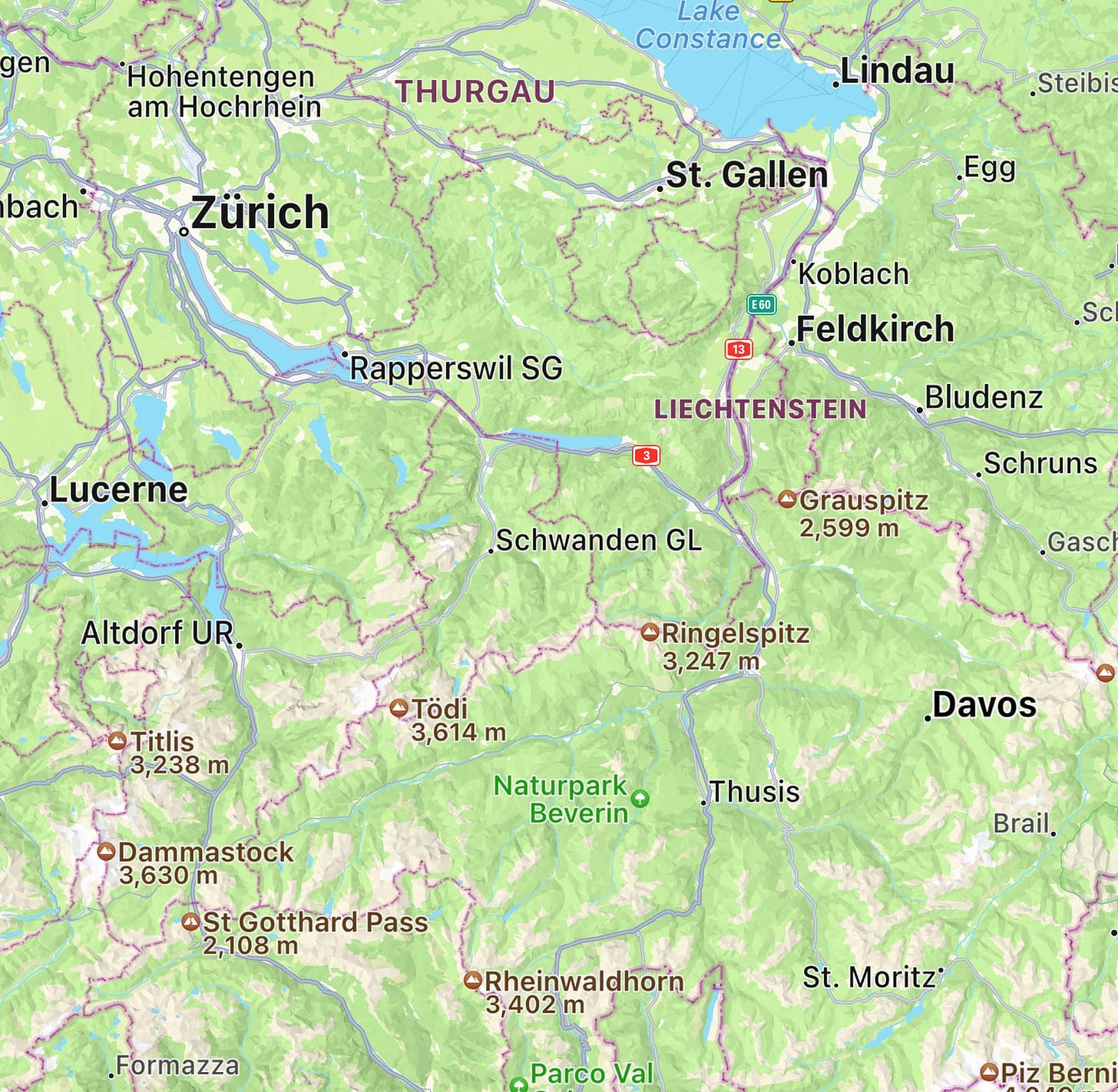It’s been Davos week, which means that the world’s political and business elites are flying in to the Swiss resort by helicopter and private jet to mingle with each other. The worst thing about the annual World Economic Forum event is the temptation to take it seriously.
It produces its own reports—its annual executive survey of risks, for example—and every management consultancy in the world of any size feels to knock up some kind of “thought leadership” to show that it has its finger on the pulse of the world’s CEOs.[1]

Fortunately, that temptation was dispelled this year by The Browser, which decided to mark Davos with daily instalments of a murder mystery that unfolds against the backdrop of the event.
‘The Circle’ and ‘Herr Doktor’
I suspect that the hand of The Browser’s editor Caroline Crampton may be behind this initiative, since she is a well-known fan of whodunnits, and it seems possible, to say the least, that the author, ‘Emily Adjarian’, is a pseudonym.
It’s also a subscribers-only thing, and I don’t normally feature those, since people can’t read the whole thing for themselves, but the descriptions of how Davos works seem to have been written by someone who knows more about it than is completely good for them.
Of course, this is a work of fiction, and it’s not about the World Economic Forum, but about an organisation called The Circle. The Circle is definitely not run by Klaus Schwab, but by someone called Herr Doktor. And the story is prefaced by the traditional disclaimer:
The people and events described in it spring directly from the author’s imagination. Any resemblance to actually existing people and events is entirely coincidental.
Well, maybe. But there’s more than a hint that this story might be a roman a clef, even if we have to work out the key ourselves.
Session-fodder
The plot: a Ukrainian woman, Olena, who used to work for the Circle, but is now trying to raise investment finance to rebuild Ukraine, is on her way—in Episode 1—to Davos by train. And as she goes, she helps readers understand how Davos works. I’ve never been, but I’ve read plenty of accounts, and this fictional version seemed to have the ring of truth. Here are some extracts.
Olena has one of the coveted White Badges that let her access everywhere. A lot of the attendees aren’t so privileged:
The Circle was not simply one circle, but a set of concentric circles, with The Doc at its centre. The outermost circles were for holders of colour-coded badges who were admitted to programmed talks and discussions only, and sometimes not to all of those. They were the session-fodder. Their job was to listen enraptured to the Finnish Minister of Folklore or the CEO of a Liechtenstein Landesbank while not even noticing that the rest of the room was filled with relative nobodies like themselves.
‘Predators’ and ‘prey’
Anybody who is anybody will be skipping the Finnish Minister of Folklore, and, perhaps, gathering in groups of 12-20 at one of the more exclusive private-by-invitation seminars. But anyone who is really someone will be at one of the breakfasts or dinners that even a White Badge doesn’t get you into:
Attendance to these was reserved for two categories of people, known informally to Circle staff as “predators” and “prey”. Prey were the rare celebrities whose names any Circle member would be proud to drop once they were back in London or New York: “I tell you what Barack said to me last week …”; “I was having breakfast with Angelina …”; “I don’t usually agree with Greta, but …”
Predators were Circle members who were (a) presentable on such occasions and (b) only too happy to pay the non-trivial supplement for VIP status.

Covering their tracks
It is an environment in which the dynamics of networking become rarified, because everyone is there to network up. But that means that those White Badges, who everyone wants to network with, had better not be embarrassed.
The Circle was a handsomely-upholstered comfort zone for people who had already changed the world, not necessarily for the better, and now wanted to cover their tracks. The Doc’s special genius, and the gift which he looked for in his staff, was to create an atmosphere of free-thinking debate while ensuring that everybody understood the limits of that debate and that no White Badge member was ever publicly embarrassed or deeply offended.
The story has a nod towards the Dutch academic Rutger Bregman, who broke this rule a few years ago by suggesting on a panel that the wealthy might like to consider paying some taxes. The year is the same, but obviously this is fiction and the reference is to a Dutch woman academic, not a man:
It was not the banality of the complaint which gave offence so much as the complainant’s lack of irony. She would not be invited back.
Preventing change
Not that anyone is ever thrown out of a session. Instead a Circle staffer sits down next to them, “praises their ‘bold’ intervention”, and promises that they will continue the conversation afterwards, while having no intention of so doing. Because one of the points of the Circle is that it is a network that is designed to prevent anything socially useful from actually happening:
(M)ost members of the Circle… saw governments, if not as enemies, then at least as predators, as institutions shaped by evolution to ingest money and power and then excrete it in inconvenient places.
Of course, individual government leaders might be perfectly personable.
But anything that any government actually wanted to do, apart from privatisating and policing, was necessarily a bad thing, precisely because a government wanted to do it, and the consequence would therefore be more government. “Lovely idea”, as they said at The Circle, “but sadly impossible to implement”.
All of this doesn’t make it sound like much of a story. But on the way to Davos, a French journalist who may be funded by the Russian government, gets murdered on the train. And after that…
More about The Browser here.
—-
[1] For example, PWC. Its annual survey of CEOs reveals that 45% of CEOs think that their company will not be viable in ten years if it stays on the same path. Not viable? That sounds like it ought to be quite a high bar in terms of their level of concern, you’d have thought. But apparently not.
“Survival-conscious CEOs among the 45% who are less confident of their company’s viability are slightly more likely than other CEOs to have taken action aimed at reinventing their business models.” Slightly. That sounds like real leadership from the top. On this aspect of their survey, the PWC report is silent.
—-
A version of this article is also published on my Just Two Things Newsletter.
